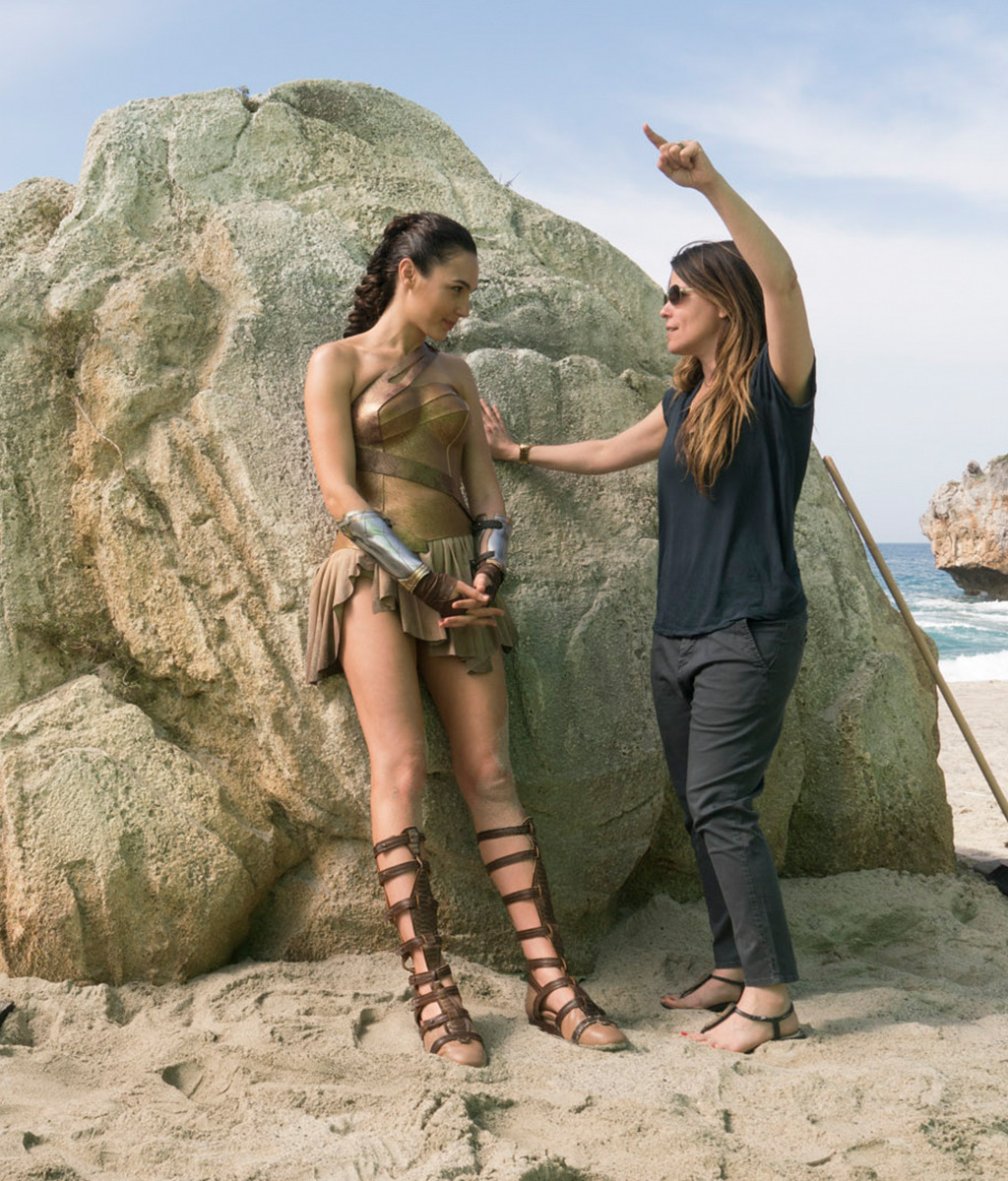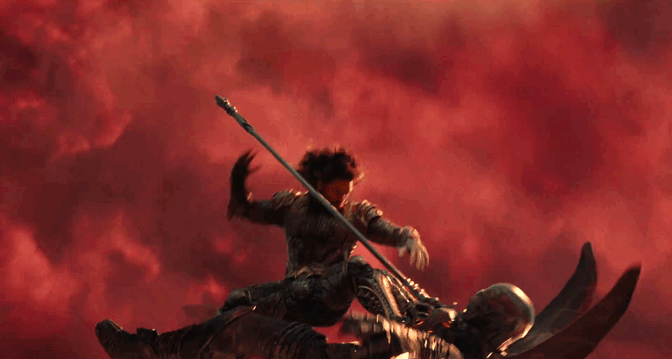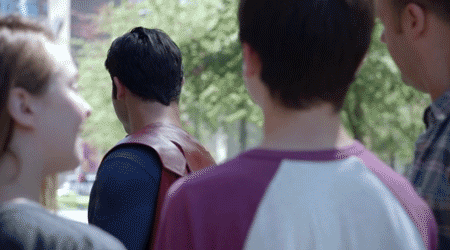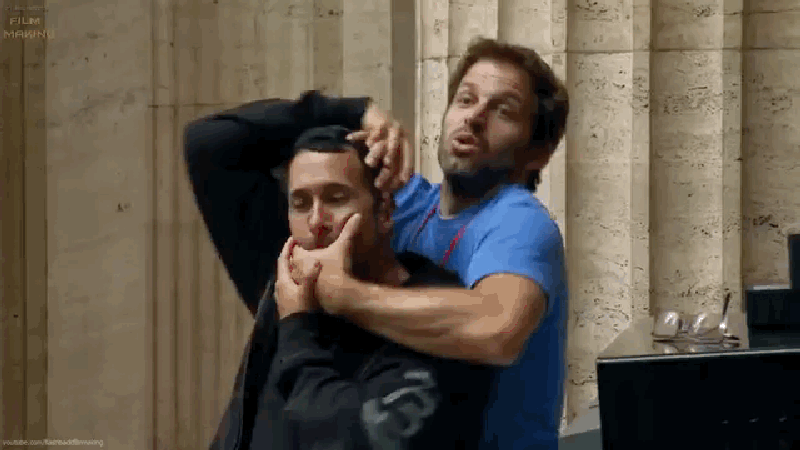LordOfLore
Banned
Link.
Much more at the link.
Theres a paradox at DC Entertainment, and it can be summed up by looking at two men who wear Supermans tights. One of them is Tyler Hoechlin, a dreamy American who portrays the Man of Steel on the small screen as part of the TV show Supergirl. The other is Henry Cavill, a statuesque Brit who plays him in DCs big-screen outings like Man of Steel, Batman v Superman: Dawn of Justice, and this falls mega-tentpole Justice League. Hoechlins Superman has a sterling image among the public: Hes not a series regular, but when he does show up, fans go gaga for him, much as they salivate over the well-reviewed show, in general. Cavills Supes, on the other hand, has an image-control problem: All of his movies so far have been met with at least a certain amount of critical disdain, if not outright derision. In short, one Superman is flying high; the other is experiencing turbulence.
Its DC Entertainment in microcosm: When it comes to movies, theres chronic bad buzz; elsewhere, things are going swimmingly. Once known as DC Comics, a 2009 restructuring made the Warner Bros.owned company more than just a comics publisher they now also work in coalition with the rest of Warner to produce superhero content in TV, games, consumer products, and films. Their comics are in a sales renaissance, thanks to a recent initiative called Rebirth. DC TV shows like Gotham, Arrow, and The Flash enjoy meaty ratings and fan loyalty. DC video games like the Injustice and Batman: Arkham franchises are considered some of the best the medium has to offer. Hell, even a partnership with Warners consumer-products division is bearing fruit: the DC Super Hero Girls toy line has turned into a miniature empire complete with animated web cartoons and a New York Timesbest-selling book.
So what accounts for the contrasting reputations? Perhaps part of the problem is that the movies, until recently, had very little influence from the core DC Entertainment team, who had done so well elsewhere. It took some work for us to earn our stripes, I think, with the rest of the studio and filmmakers, says the companys boyish chief creative officer, Geoff Johns, sitting at a long table alongside a clutch of DC executives in a San Diego Marriott on the first day of this Julys San Diego Comic-Con. But in the past 16 months, theyve gained significantly more influence on the movie operation, and that change is already bearing fruit. Its not chaos, DC Entertainment president Diane Nelson assures me, seated near Johns. Its intentional.
Theyre in the midst of a fight to convince the public thats the case. For years, they struggled at the multiplex while their blood rival, Marvel, soared. Starting in 2008, Marvel pioneered a Hollywood-buzz concept known as the cinematic universe: a narrative enterprise in which a bunch of individual films are said to exist in the same world, with characters crossing over and lots of buildup to megamovies where the whole gang gets together. Disney-owned Marvel has captured billions of eyes and dollars by running that operation with an iron fist: Its movies are all tightly linked and its brand image is held in a vise grip.
Seeing the success of that model, Warner launched its own shared filmic cosmology with 2013s Man of Steel, which did well at the box office but received criticism for its depiction of a brooding Superman who murders someone at the end of the story. Then came 2016s grim, gritty, and costly Batman v Superman: Dawn of Justice, which drew a harsh critical response and, with a global gross of $873 million, fell far short of Marvels $1.153 billion-earner that year, Captain America: Civil War. Just a few months later, Suicide Squad earned $745 million a hefty chunk of change but was savaged by critics, leaving it with a 25 percent critical aggregate on Rotten Tomatoes. Those speed bumps would be bad enough, but the fact that these DC movies were all part of one interlinked super-story made the situation all the more problematic: How can you have a successful universe if its individual galaxies arent doing so hot?
None of that seems to worry Nelson, and thats partly because DC and Warner have adopted a new strategy: Lets rethink that whole universe thing. Theyre not giving up on the idea of continuity, but they want to deemphasize the idea that all of these flicks are occupying the same space. Our intention, certainly, moving forward is using the continuity to help make sure nothing is diverging in a way that doesnt make sense, but theres no insistence upon an overall story line or interconnectivity in that universe, says Nelson, drawing nods from the top brass around her.
This new approach already has a test case, and, by any measure, it was a successful one: Wonder Woman outearned every other movie this summer while scoring a 92 percent on Rotten Tomatoes higher than nearly every Marvel movie. And one of the keys, as Nelson and her execs saw it, was the fact that it more or less told the viewer to ignore the rest of the universe and just focus on what was in front of them. There was a tiny nod to Batman v Superman, but that was it. The movies not about another movie, says Johns. Some of the movies do connect the characters together, like Justice League. But, like with Aquaman one of their next efforts, out in 2018 our goal is not to connect Aquaman to every movie. As Nelson puts it, Moving forward, youll see the DC movie universe being a universe, but one that comes from the heart of the filmmaker whos creating them.
One of the centerpieces of this new, decentralized strategy is an as-yet-unnamed side label of occasional movies that are completely separate from everything else, set entirely outside the cinematic universe. Total stand-alones based on good ideas from big-name filmmakers. Movies that are just movies, not components of a larger piece of clockwork. The first one theyre talking about is a solo outing about supervillain the Joker, set to be directed and co-written by The Hangover and War Dogs alumnus Todd Phillips. Johns says theyll be announcing the name of of this side label soon-ish.
That all may be welcome news for critics who felt that previous DC outings were too tied up in world-building, but it wont single-handedly clobber the pessimistic chatter Warners superheroes face. While DC Entertainment has experienced tremendous success in TV, comics, and games, when it comes to film, they still have a huge issue with public perception. But they think theyre turning a corner. The approach Warner and DC are now implementing at the cineplex is not one they came to easily, nor is it one they hammered out solely as a reaction to movie backlash. It arrived after nearly a decade of growth, missteps, and careful corporate maneuvering.
Much more at the link.








